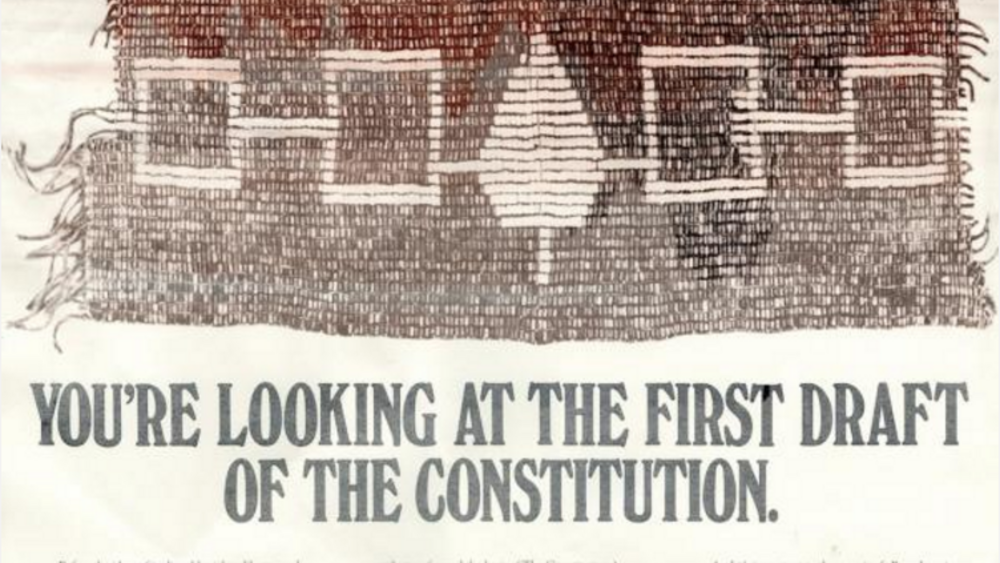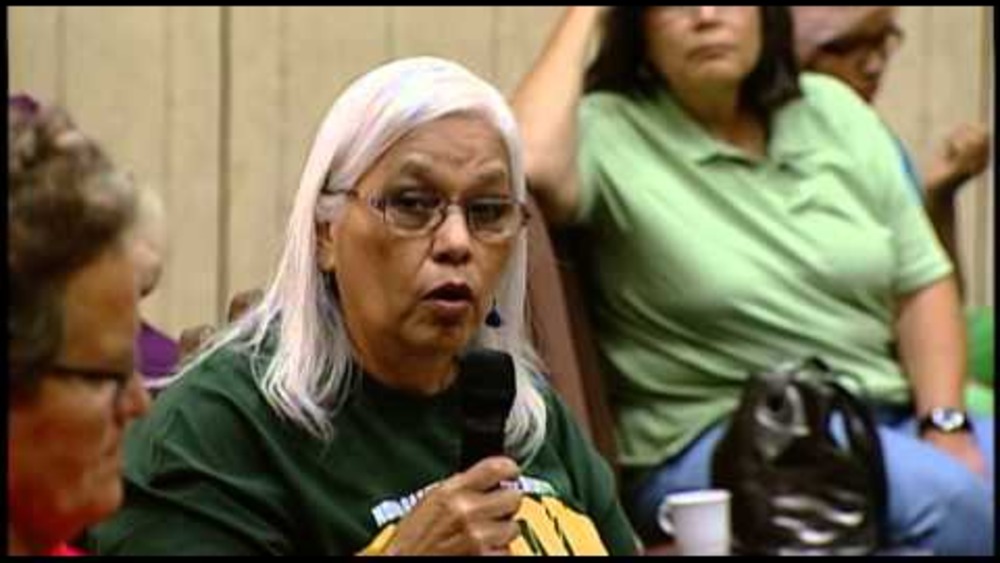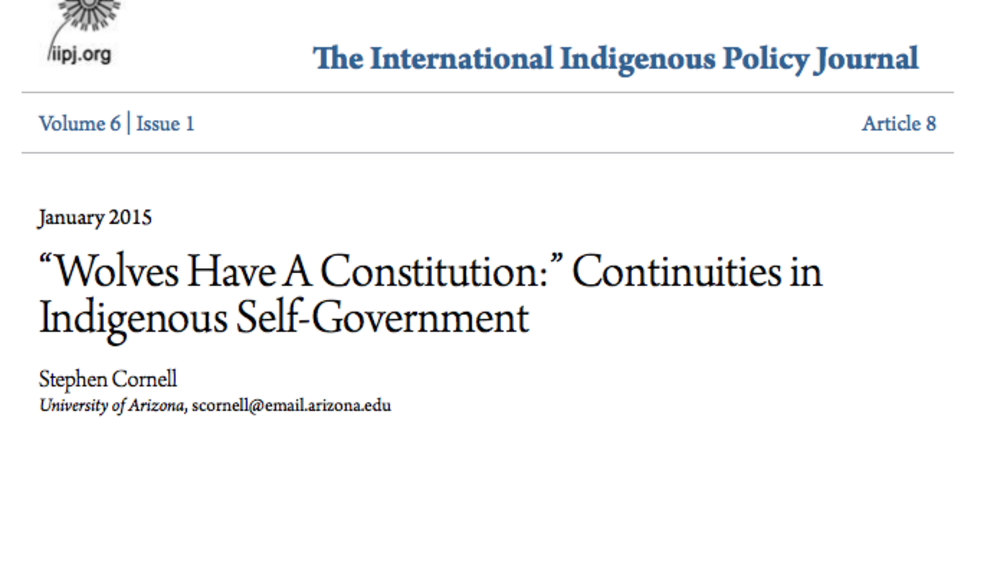Indigenous Governance Database
governing system

Kin-Based Governments Can Be Successful and Profitable
A key to understanding American Indian nations, and Indigenous Peoples in general, is local community organization. Local groups, as basic building blocks of indigenous nations, play a powerful role in tribal or national consensus building and decision-making. The ways that local indigenous groups…

Truth To Tell: Community Connections - White Earth Constitutional Forum Part II
In collaboration with production partner KKWE/Niijii Radio, TruthToTell and CivicMedia/Minnesota traveled west on August 14, 2013, to the White Earth Reservation to air/televise the seventh in our series of LIVE Community Connections forums on critical Minnesota issues. Convened at White Earth's…

Wolves Have A Constitution: Continuities in Indigenous Self-Government
This article is about constitutionalism as an Indigenous tradition. The political idea of constitutionalism is the idea that the process of governing is itself governed by a set of foundational laws or rules. There is ample evidence that Indigenous nations in North America–and in Australia and New…
